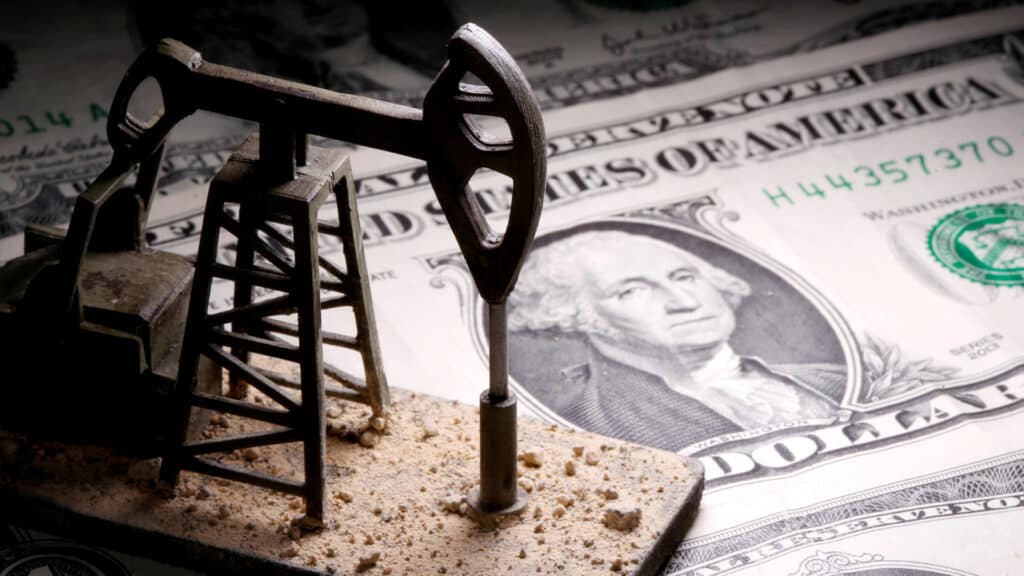
The U.S. presidential election will take place on Nov. 5, with a tight race between the Democratic candidate Kamala Harris and the Republican former president Donald Trump. The election outcome will influence many global processes, including the economy. For Kazakhstan, one critical factor is the global price of oil, which directly impacts the tenge exchange rate. Kursiv.media interviewed economists to explore potential outcomes for oil prices depending on who wins and what each scenario could mean for Kazakhstan.
Election influence on oil prices may be overstated
Dmitry Sochin, a board member of the Qazaq Association of Minority Shareholders (QAMS), believes the U.S. election’s impact on the global oil market is often overstated and may, in reality, be minimal.
«The U.S. presidential election tends to generate noise in the markets. U.S. oil production levels are near all-time highs and have already surpassed pre-pandemic numbers. With oil prices at sustainable levels for businesses, there’s little need for additional stimulus to the industry,» Sochin noted.
He suggested that a more likely trigger for any oil market downturn would be a broader global economic slowdown. However, predicting exact outcomes remains challenging. Kazakhstan, despite statements from the government, has yet to fully transition to a counter-cyclical budget policy, which would involve saving during revenue growth and relying on reserves during downturns. According to Sochin, without this shift, any increase in commodity prices will likely lead to further government spending.
OPEC+ vs. American oil producers
Ramazan Dossov, lead expert at the Association of Financiers of Kazakhstan (AFK), highlighted Trump’s campaign promise to ramp up oil drilling and production if re-elected. «Drill, baby, drill» has been a Republican rallying cry, and if acted upon, it could require intervention from OPEC+, an alliance that includes Kazakhstan and other major oil-producing countries. Since 2016, OPEC+ members have agreed to voluntary cuts to stabilize oil prices. However, should U.S. production increase significantly, even additional OPEC+ cuts might be insufficient to counterbalance the oversupply.
«In a worst-case scenario, a prolonged drop in oil prices could sharply reduce export revenues, worsen the trade and current account balance, cut budget income, slow economic growth and increase pressure on the tenge and inflation,» Dossov noted. His most likely projection, however, is for Brent crude to hover around $70 per barrel.
Even if Trump aims to boost already high domestic oil production levels (around 13 million barrels per day), the success of this plan seems unlikely. Market participants have largely priced in the impact of a possible Trump re-election, the analyst said.
«Additionally, local [state] authorities have significant leverage to challenge federal policies, potentially disrupting the administration’s objectives,» he added.
If Kamala Harris wins, commodity markets are expected to maintain the status quo, with prices shaped by OPEC+ policies, the economic health of the U.S. and China and developments in the Middle East.
«Democrats traditionally prioritize environmental policies and reducing reliance on fossil fuels. In the long term, this focus could have significant effects on the commodities market, which would, in turn, impact Kazakhstan’s economy,» Dossov said.
He also highlights the potential lifting of sanctions on Russia, should hostilities in Ukraine cease, as a major factor. This shift could reinvigorate economic growth by restoring trade links and logistics, likely supporting higher oil prices. However, it doesn’t eliminate the risk of U.S.-China tensions, which might escalate under a Trump presidency and could lead to renewed trade wars. Recently, this tension has appeared through protective tariffs on Chinese electric vehicles.
«The policy impact of both candidates will have different consequences for Kazakhstan’s key trading partners: Russia, accounting for 19% of trade, and China, at 21%. However, much of this depends on which party controls Congress, as it has considerable influence over domestic policies set by the White House,» Dossov concluded.
Oil price outlook
Murat Kastayev, CEO of Damu Capital Management, sees both economic and political factors impacting potential shifts in oil prices. Economically, Trump has committed to boosting oil production, while Harris and the Democratic Party generally focus on climate policy. Politically, a Trump administration could also heighten tensions in the Middle East, possibly affecting oil production from Iranian fields. In this case, despite his pro-production stance, global supply could tighten. Additionally, a revived trade war with China might slow global economic growth, weakening demand and offsetting the initial supply changes.
«Trump’s approach to different regions is tougher, unpredictable and sometimes contradictory, which could seriously destabilize global markets,» Kastayev observed.
He views Harris’s policies as more moderate and stable. Like the incumbent president Joe Biden, she would likely address international conflicts with less radical approaches. For Kazakhstan, Kastayev sees Harris as the preferable candidate, given her more balanced approach.
Kastayev explains that a spike in oil prices would bring Kazakhstan substantial revenue, address the budget deficit and strengthen the tenge, but it could also slow reform efforts.
«High oil prices diminish the government’s incentive to improve domestic conditions. Conversely, cheaper oil would intensify budgetary pressures and weaken the tenge, but it might force the authorities to shift away from oil dependency, embrace fiscal discipline, reduce spending and accelerate economic reforms.»
The limited downside for oil prices
Financial analyst Arman Beisembayev sees Trump as the likely winner based on pre-election polls. Governments worldwide, including those in the EU, Russia and Ukraine, are adapting policies in response to Trump’s anticipated climate stance. Beisembayev notes that Trump’s skepticism about climate initiatives will be a crucial factor in shaping international strategies.
The analyst highlighted Trump’s stance on the climate agenda, saying,
«Trump has made it clear that he intends to drop the climate agenda. In his words, ‘Go to hell with your climate agenda, with your green economy.’ Instead, he says he’ll let U.S. oil companies ‘drill wherever they can drill,’ with his famous ‘Drill, baby, drill’ slogan as the foundation of his energy policy. This approach will likely destabilize oil prices by adding supply and if this supply eventually surpasses demand, prices will most likely fall.»
Beisembayev added that this approach will strain relations with OPEC and OPEC+, as these countries would face market losses and find American oil filling the void left by their reduced output.
«Oil prices below $50 per barrel would be a significant challenge for us. That price point is very low given that our production costs are around $60 to $70 per barrel. With oil currently at $70, we’re already close to the edge of profitability. We can tolerate a price dip, but $50 would make things quite difficult,» Beisembayev said.
He noted that the U.S., too, faces production cost constraints, particularly with its reliance on costly shale oil. This could lead American producers and the White House to seek a balance in production levels, limiting Trump’s rhetoric to a verbal standoff with OPEC rather than an actual push for increased drilling.


